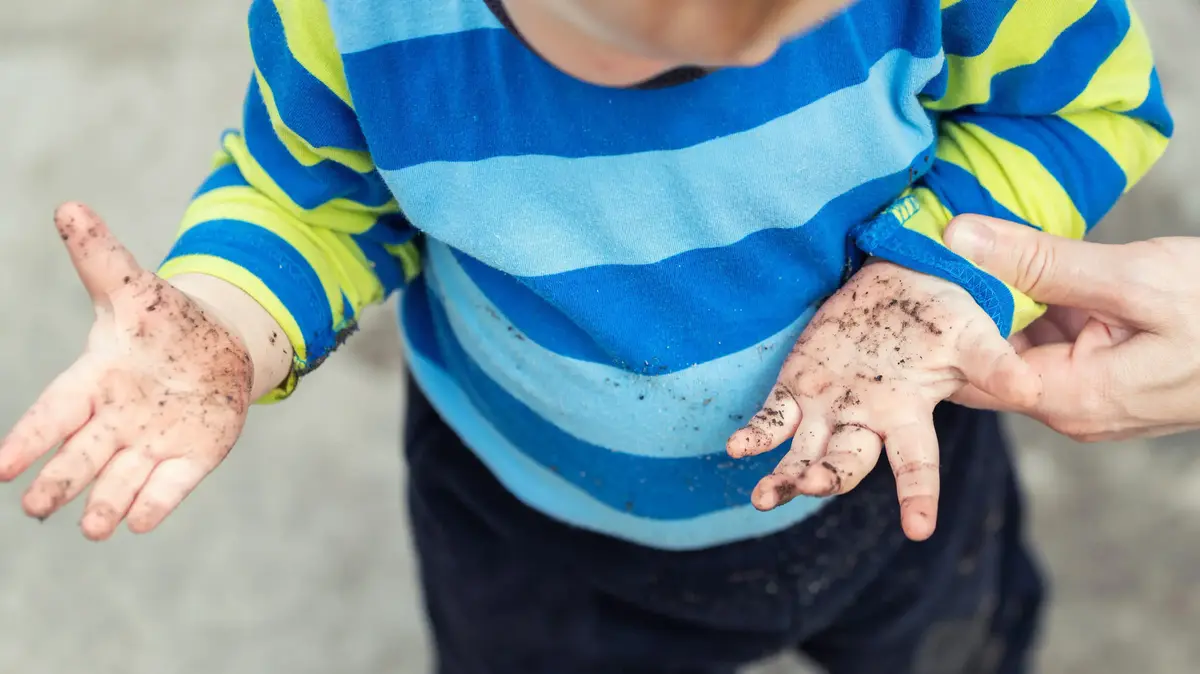Which is better - to let the child get dirty or maintain hygiene?
There are parents who will let their children experiment, touch and get dirty - and there are also those who will constantly wipe his hands with a wipe and wash his face 8 times a day - where are you on this scale and what is better?
Daniel Sarantsky, in collaboration with JAMA
18/01/2022
Tuesday, 18 January, 2022, 07:27 Updated: 07:35
Share on Facebook
Share on WhatsApp
Share on Twitter
Share on Email
Share on general
Comments
Comments
The world is divided into 3 types of parents: those who are willing for the child to experiment, touch, get dirty, smear food or other things, those who really do not - and constantly take care to clean it or teach it to clean itself, and those who are somewhere in the middle.
Everyone comes to parenting with their own character and habits.
While there is one person who is unable to deal with stains and clutter, someone else is less bothered and he takes into account a lot of laundry, a little stained clothes or tomato sauce leftovers on the edge of the couch.
More on Walla!
Things that simply should not be said to new mothers
In collaboration with JAMA
Dorit Ben Meir
, a diagnoser and therapist for motor development, sleep counseling and baby massage, emphasizes that there is no one truth, and this, as stated, depends on the parent and also the age of the baby.
At young ages (up to a year and a half or so), you control the child's hygiene and create the desired exposure for him.
At later ages (two years and up) the child demands for himself what, when and where to touch, so that parental control becomes limited.
So what is still recommended?
If the child has no exposure at all - in the future he will express reluctance.
Toddler with dirty hands (Photo: ShutterStock)
Touch - Encourage the child to touch different textures and materials as well as animals.
Do not expose your reluctance, if any, to him.
Food - From the age of two, encourage the child to use cutlery at a meal and not to eat by hand.
Hygiene - as part of the agenda, clarify house rules: Before and after a meal, wash your hands with soap and a shower at the end of each day. You can decide how strict you are. "In the rules of hygiene, for example, if a child wears an apron while eating or allows his clothes to get dirty.
Remember that if the child has no exposure at all, especially at young ages, he will probably in the future express reluctance to dirt or textures. Use discretion and try to balance desire and cleanliness And the importance of experimentation - yes, even in dirt.
The Jama app was established with the aim of addressing mothers of babies from birth to age three, and centralizing for them content, activities, tips from experts and videos that will accompany them throughout this challenging period.
All the content in the app "grows" together with the baby and is precisely adapted to its developmental stages, so that the mothers receive only what is relevant to them and interests them at any given moment.
The Jama app is the place for mothers in Israel to meet and get to know other mothers around them, and create new and exciting friendships in the fascinating journey.
Search us on Google: https://app.jama.co.il/
health
New parents
Tags
Babies
parents
Hygiene






/cloudfront-eu-central-1.images.arcpublishing.com/prisa/XU5TW47UO5E65LAD4SJM6DIGU4.jpg)


